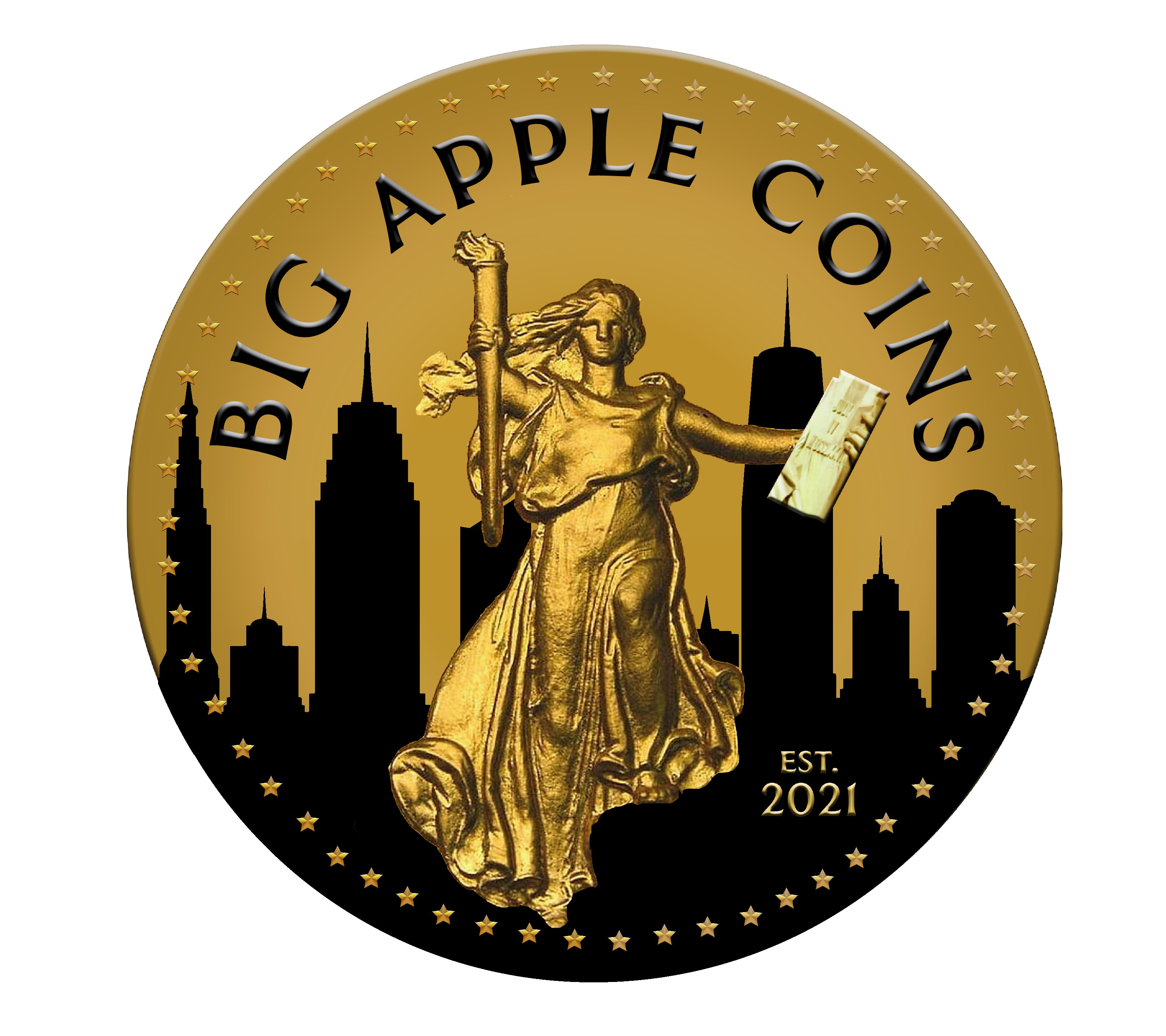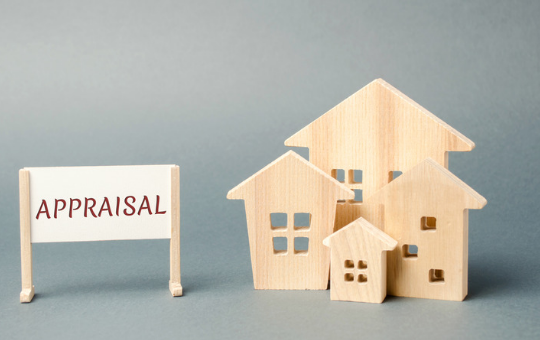The coin market is always changing. So, if you hold coins then getting your coin collection appraisal is the important to in knowing it true worth. An appraisal helps you decide if you need to sell or hold your collection. This blog will share tips for getting your coin collection appraised in 2024-2025. These tips will help you get an accurate appraisal that maximizes the value of your collection. Let's check it out.
How to Appraise Your Coins Before Selling?
Appraising your coins before selling might seem difficult because you need to find a reliable and knowledgeable appraiser. You also need to understand the types of coins you own.
Coin collection appraisal helps you know the value of your coins. Appraisals help you make good decisions about selling. The appraisal process is simple if you follow a few steps. Here's how to appraise your coins before selling.

Step 1: Prepare Your Coin Collection for Appraisal
Before you get your coins appraised, it is important to prepare your collection. This will make the process easier and protect the value of your coins. Here are some simple tips to help you get started.
If your coins are stored in albums or plastic pages, leave them there. Do not try to take them out because this could damage the coins and lower their value.
Cleaning coins can leave scratches that will reduce their worth. You should not clean them even if your coins are dirty.
Step 2: Find a Qualified Coin Appraiser
The next step is to find a certified and trustworthy appraiser after you have prepared your coins. A qualified appraiser will give an accurate evaluation, which is important if you want to sell your collection. Visit a local expert who can provide you with a detailed evaluation and help you connect with collectors or buyers in your area if you are looking for a coin collection appraisal near me.
Here are a few things to think about when looking for an appraiser.
Expertise in Coin Types
You need to find an appraiser who is familiar with the type of coins you have. There are many different kinds of coins, and not all appraisers have experience with every type. For example, if you have ancient or rare coins, it is best to find someone who specializes in those areas. However, if you do not know what type of coins you have, it might be better to choose an appraiser with more general knowledge.
Appraiser's Fees
Different appraisers charge different fees for their services. Experts in specific types of coins may charge more for their expertise. It is important to talk about the fees before you choose an appraiser. Instead of choosing someone who charges based on the value of your coins, you should go with appraisers who charge a flat fee, an hourly rate, or a project-based fee. This helps you avoid any potential conflicts of interest.
Avoiding Appraiser Bias
It is important to be aware of any possible bias that an appraiser might have. If the appraiser wants to buy your coins after the appraisal, they might undervalue the collection to get a lower price. You should find an appraiser who does not plan to buy or sell your coins after the evaluation to avoid this. This will help you get an unbiased and honest appraisal.

Step 3: Consult Multiple Appraisers
Getting a second opinion is always helpful, and the same goes for coin appraisals. You should consult more than one appraiser to get a more accurate idea of your coin collection's value. Every appraiser might give a different evaluation based on their knowledge and experience.
The value of your coins is based on two main things. These are the bullion value and the numismatic coin value. The bullion value is the value of the metal in the coins, and it stays the same. The numismatic value is the historical and collectible value of the coins, and it can vary between appraisers. By consulting multiple appraisers, you will get a clearer picture of the true worth of your collection.
Step 4: Consider Appraisal Charges
Before you choose an appraiser, you should talk about their fees. As mentioned earlier, it is better to avoid appraisers who charge based on the value of your collection. This can lead to conflicts of interest. Instead, look for appraisers who charge flat fees, hourly rates, or project-based fees. This way, you know the appraisal is fair.
Also, if your appraisal requires travel, you need to decide who will cover the travel costs. Being clear about the charges from the start will prevent any misunderstandings.
How to Sell Your Coins?
Once you have appraised your coin collection, the next step is deciding how to sell your coins. Here are three common ways to do so:
1. Local Coin Dealers
Selling to local coin shops is a good option if you need to sell quickly. Dealers often buy coins at lower prices to make a profit. This is ideal for a fast sale. If you have valuable coins and time, you might make more money elsewhere.
2. Physical Auctions
You can sell your coins at auction. Auctions attract collectors but often involve commission fees. The auction house takes a percentage of the final sale price. Auctions can get you more money for rare coins, but you may lose out on profit because of the commission fee.
3. Online Marketplaces
Selling coins online is popular and convenient. You need an internet connection and a device to list your coins. Remember that you might have to pay fees on these sites like eBay or PayPal. Dealing with fraud and shipping high-value coins can be tricky.

Final Thoughts
Knowing the value of your coins is important when selling or buying a coin collection appraisal. But it's a key step with many benefits before selling your coins. It is a good approach to sell your coins locally or on online platforms. Connect with Big Apple Coins if you are looking for the best shopping experience to sell and appraise your coins. We buy and sell all forms of coins and precious metal bullion with honest prices and market insights and answer your questions.
Looking to get your coin collection appraised? Visit Big Apple Coins for expert appraisals and valuable insights. Explore our Google reviews and start planning your next coin deal today!
Frequently Asked Questions
1. Why is it important to get my coin collection appraised?
An appraisal helps you determine the true value of your coin collection based on current market trends. It allows you to make informed decisions about whether to hold or sell your collection and ensures you maximize the potential value of your coins.
2. How do I find a qualified coin appraiser?
Look for an appraiser who has experience with the type of coins in your collection. It's essential to choose someone certified, trustworthy, and who does not have a conflict of interest, such as wanting to buy your coins. Consulting multiple appraisers can also provide a more accurate estimate of your collection's value.
3. Should I clean my coins before getting them appraised?
No, you should never clean your coins before an appraisal. Cleaning can cause damage or scratches, reducing their numismatic value. Always present your coins in their original condition to avoid devaluation.
4. What are the best ways to sell my coins after an appraisal?
You can sell your coins to local dealers, through physical auctions, or on online marketplaces. Each option has pros and cons, such as dealer profits, auction commission fees, or potential fraud risks in online sales. Choose the method that aligns best with your needs and time frame.


Share:
Five Important Key Dates for Morgan Silver Dollars That Every Collector Should Know
How to Trade Coins: A Beginner's Guide